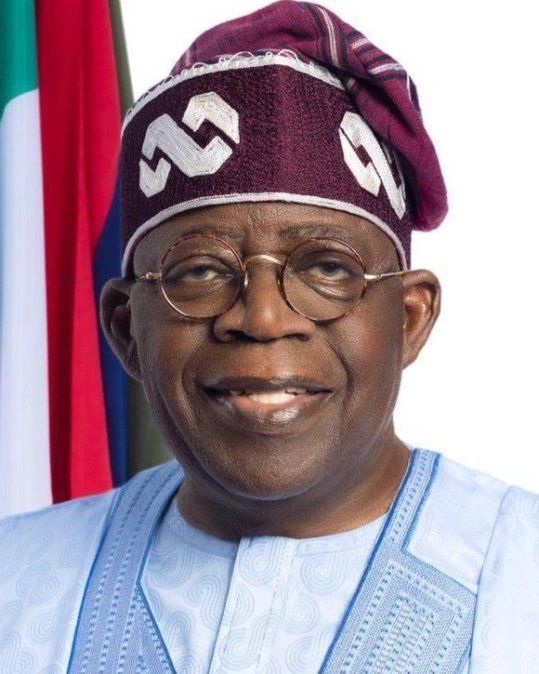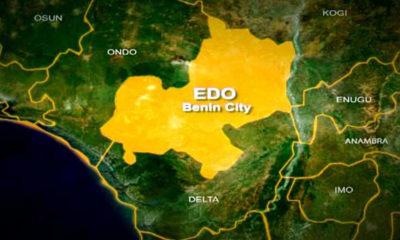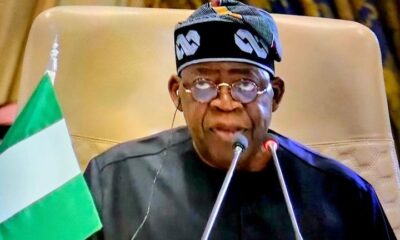NEWS
BREAKING: Nigeria Pushes For Solutions To Climate Change At CHOGM 2024

. . . Claims To Have Suffered Devastating Impact of Global Disaster
. . . Declares Support For Institutional Reforms At Commonwealth
Nigeria has called for urgent and aggressive measures to combat the catastrophic impact of climate change, emphasizing that it is a global crisis that demands immediate action.
This was disclosed in a statehouse statement by the Senior Special Assistant to The President on Media & Communications (Office of The Vice President), Stanley Nkwocha, on Saturday.
According to Nkwocha, Nigeria also restated support for the preservation of democracy, the protection of civil rights across the Commonwealth, as well as ongoing reforms in the organisation, focusing more on results-oriented value creation.
These, among others, were Nigeria’s priorities at the just-concluded Commonwealth Heads of Government Meeting (CHOGM) held in Apia, the capital of the Independent State of Samoa, between October 21 and 26.
He pointed out that the Nigerian delegation to the meeting was led by the Minister of Environment @FMEnvng, Alhaji Balarabe Lawal @BalarabeAbbas_, after technical flight issues prevented Vice President Kashim Shettima from representing his boss, President Bola Ahmed Tinubu, at the summit.
“Meanwhile, a New Secretary General of the Commonwealth has emerged. She is Hon. Shirley Ayorkor Botchwey @AyorkorBotchwey, currently Ghana’s Minister for Foreign Affairs and Regional Integration. Nigeria and other nations voted for her during the meeting of the Commonwealth leaders on Saturday. President Bola Ahmed Tinubu, GCFR, has already congratulated Ghana and the new Secretary General,” Nkwocha stated.
He revealed that shortly after a visit to the Moataa village, a community in Apia decorated with Nigerian colours and flags, Lawal, who was immediately delegated by the President to stand in for VP Shettima, told world leaders at CHOGM 2024 that Nigeria has had its unpalatable share of the devastating impact of climate change through flooding, degraded lands and rising sea levels.
“We need to address the climate challenge very strongly because of its effect on our society; it is a global phenomenon. We have experienced flooding in our country, degraded lands and rising sea levels, among others.
“Now is the time to join forces at the level of the Commonwealth to address these issues,” the Minister stated, adding that Nigeria’s positions on the environment, democracy, security, and other issues were prompted by current challenges faced across the world.
Lawal noted that Nigeria also made its position clear “in support of democracy and the protection of civil rights across Commonwealth nations, including the processes for strengthening the Commonwealth to make it stronger and more vibrant.”
He emphasised that Nigeria also backed and encouraged ongoing institutional reforms at the Commonwealth, reaffirming its commitment to the organisation’s renewal.
The Minister also reiterated Nigeria’s support for the new Secretary-General of the body, expressing hope that, with Botchwey’s emergence, there would be more robust engagement between Africa and the Commonwealth.
Commonwealth leaders had earlier in their executive session, “welcomed His Majesty, King Charles III, to his first CHOGM as Head of the Commonwealth.”
In a communiqué issued by the Commonwealth secretariat at the end of the meeting, the leaders commended the King’s unwavering commitment to a more sustainable and resilient future for the 56 member countries of Commonwealth, and to strengthening education, health and climate resilience, particularly in small island developing states (SIDS), a commitment that has inspired the King’s Commonwealth Fellowship Programme.
The leaders reflected on the gathering being the first CHOGM since the loss of Her Late Majesty Queen Elizabeth II, who served as Head of the Commonwealth with extraordinary duty for over seventy years.
The meeting also named Antigua and Barbuda as the host of the next Commonwealth Heads of Government Meeting in 2026.
International News
Lawmaker Introduces Bill To Allow Trump A Third Presidential Run

In a controversial move, Republican Representative Andy Ogles has introduced a resolution aimed at amending the U.S. Constitution to permit former and current President Donald Trump to run for a third term in office.
The proposal, announced on Thursday, seeks to revise the 22nd Amendment, which limits presidents to two terms.
Ogles argued that Trump is uniquely equipped to address the nation’s challenges and lead a turnaround for the United States.
READ MORE: EDO: SUBEB Chair, 6 Commissioners, Board Chairs Take Oath Of office
“No person shall be elected to the office of the President more than three times,” Ogles said in his statement. “He has proven himself to be the only figure in modern history capable of reversing our nation’s decay and restoring America to greatness. He must be given the time necessary to accomplish that goal.”
The congressman also underscored the importance of giving Trump the tools needed to address what he described as damage caused by the Biden administration.
“We must provide Trump with every resource necessary to correct the disastrous course set by the Biden administration,” he added.
“He is dedicated to restoring the republic and saving our country, and we, as legislators and as states, must do everything in our power to support him.”
The resolution calls for a constitutional amendment to modify the 22nd Amendment, which was ratified in 1951 following Franklin D. Roosevelt’s unprecedented four-term presidency from 1933 to 1945.
Roosevelt’s extended time in office spurred fears of presidential overreach, leading to the adoption of term limits.
Trump, who won the 2024 presidential election and returned to office, has previously downplayed the idea of seeking a third term.
However, during a conversation with Republican lawmakers, he humorously alluded to the possibility.
“I suspect I won’t be running again unless you do something,” Trump said. “Unless you say, ‘he’s so good, we have to just figure it out.’”
Ogles lauded Trump’s actions during his second term, citing executive orders aimed at securing the southern border, restricting gender identities to male and female, boosting energy production, and withdrawing the U.S. from the World Health Organization.
These measures, according to Ogles, demonstrate Trump’s ability to restore America’s standing and address critical issues.
The 22nd Amendment, proposed in 1947 and ratified four years later, was designed to uphold the principle of limited presidential terms first established by George Washington, the nation’s first president.
Washington voluntarily stepped down after two terms, warning against any president serving so long as to resemble a monarch or dictator.
Republicans currently hold a slim three-seat majority in the House of Representatives, but amending the Constitution is a daunting task.
The proposed amendment would require approval from two-thirds of both the House and Senate, as well as ratification by three-fourths of the states—a high bar in today’s deeply divided political climate.
While Ogles’ proposal is unlikely to succeed, it reflects the enduring loyalty Trump commands among his supporters and within the Republican Party.
The resolution has already drawn criticism from opponents who argue it undermines democratic principles, while supporters insist it is necessary to allow Trump to complete what they view as his mission to “restore America’s greatness.”
NEWS
Tinubu Appoints Ganduje, Ajibola, Others As Heads Of Federal Agencies

President Bola Ahmed Tinubu has approved the appointment of board chairpersons for 42 federal organizations, alongside other key leadership positions, as part of his administration’s efforts to strengthen governance structures across the country.
Among the notable appointees is Abdullahi Ganduje, National Chairman of the All Progressives Congress (APC), who has been named Chairman of the Federal Airports Authority of Nigeria (FAAN).
Similarly, APC National Secretary, Senator Bashiru Ajibola, has been appointed Chairman of the National Sugar Development Council (NSDC).
READ MORE: Tragic School Bus Fire In Thailand Kills 23, Investigation Launched
The appointments, announced on Friday by the Special Adviser to the President on Information and Strategy, Bayo Onanuga, include key figures from diverse sectors of the country.
In the statement, Onanuga revealed that President Tinubu had also appointed a new Managing Director for the Nigerian Railway Corporation and a Director-General for the National Board for Technology Incubation (NBTI).
“President Bola Ahmed Tinubu has appointed board chairpersons for 42 federal organizations and a secretary to the board of the Civil Defence, Immigration, and Prisons Services,” the statement read.
“The President has also appointed a new managing director for the Nigerian Railway Corporation and a director-general for the National Board for Technology Incubation (NBTI).”
Here is the full list of the appointments announced by President Bola Ahmed Tinubu:
1. Federal Airports Authority of Nigeria (FAAN) – Abdullahi Ganduje (Chairman)
2. National Sugar Development Council (NSDC) – Senator Bashiru Ajibola (Chairman)
3. Nigeria Bulk Electricity Trading Company – Sulaiman Argungu (Chairman)
4. National Agency for Great Green Wall – Senator Magnus Abe (Chairman)
5. National Youth Service Corps (NYSC) – Hillard Eta (Chairman)
6. Nigerian Institute of International Affairs – Prof. Bolaji Akinyemi (Chairman)
7. National Board for Technology Incubation (NBTI) – Kazeem Kolawole Raji (Director-General)
8. Nigerian Railway Corporation – Dr. Kayode Isiak Opeifa (Managing Director)
9. Federal Mortgage Bank of Nigeria – Nasiru Gawuna (Chairman)
10. National Teachers Institute – Festus Fuanter (Chairman)
11. Teachers Registration Council of Nigeria – Mustapha Salihu (Chairman)
12. Industrial Training Fund – Hamma Adama Ali Kumo (Chairman)
13. Nigerian Institute of Educational Planning and Administration – Victor Tombari Giadom (Chairman)
14. Nigerian Postal Service – D.J. Kekemeke (Chairman)
15. National Inland Waterways Authority – Musa Sarkin Adar (Chairman)
16. National Steel Council – Prof. Abdulkarim Kana Abubakar (Chairman)
17. National Environmental Standards and Regulations Enforcement Agency (NESREA) – Garba Datti Muhammad (Chairman)
18. National Bio-Safety Management Agency – Mu’azu Bawa Rijau (Chairman)
19. Nigerian Building and Road Research Institute – Durosimi Meseko (Chairman)
20. Nigerian Institute of Science Laboratory Technology – Donatus Enyinnah Nwankpa (Chairman)
21. Sheda Science and Technology Complex – Senator Abubakar Maikafi (Chairman)
22. Federal Teaching Hospital, Gombe – Zainab A. Ibrahim (Chairman)
23. Federal Teaching Hospital, Ido-Ekiti – Durotolu Oyebode Bankole (Chairman)
24. Federal Medical Centre, Abeokuta – Abdullahi Dayo Israel (Chairman)
25. Federal Medical Centre, Asaba – Dr. Mary Alile Idele (Chairman)
26. Federal Medical Centre, Lokoja – Nze Chidi Duru (Chairman)
27. Federal Medical Centre, Owerri – Emma Eneukwu (Chairman)
28. Federal Medical Centre, Umuahia – Uguru Mathew Ofoke (Chairman)
29. Federal Medical Centre, Yenagoa – Felix Chukwumenoye Morka (Chairman)
30. Federal Medical Centre, Yola – Bashir Usman Gumel (Chairman)
31. David Umahi Federal University Teaching Hospital, Ubuhu, Ebonyi State – Dr. Ijeoma Arodiogbu (Chairman)
32. Nigerian Maritime Administration and Safety Agency (NIMASA) – Yusuf Hamisu Abubakar (Chairman)
33. Federal Scholarship Board – Babatunde Fakoyede (Chairman)
34. National Oil Spill Detection and Response Agency – Edward Omo-Erewa (Chairman)
35. Raw Materials Research and Development Council (RMRDC) – Isa Sadiq Achida (Chairman)
36. Federal Medical Centre, Birnin Kudu – Mohammed Gusau Hassan (Chairman)
37. National Building and Road Research Institute – Yahuza Ado Inuwa (Chairman)
38. Sokoto-Rima River Basin Development Authority – Abubakar Shehu Wurno (Chairman)
39. Aminu Kano Teaching Hospital – Augustine Chukwu Umahi (Chairman)
40. Nnamdi Azikiwe University Teaching Hospital, Nnewi – Ali Bukar Dalori (Chairman)
41. Ahmadu Bello University Teaching Hospital, Shika, Zaria – Lawal M. Liman (Chairman)
42. Civil Defence, Immigration, and Prisons Services Board – Jubril Abdulmalik (Secretary)
43. Nigerian Social Insurance Trust Fund – Shola Olofin (Chairman)
All appointments take immediate effect and the President has directed all board chairpersons to refrain from interfering in the day-to-day management of the agencies, emphasizing that their roles are strictly non-executive.
“President Tinubu directs the board chairpersons not to interfere with the management of the organizations, emphasizing that their positions are non-executive,” Onanuga added.
International News
Bangkok Shuts Over 350 Schools As Air Pollution Reaches Dangerous Levels
Bangkok authorities closed more than 350 schools on Friday due to hazardous air pollution, marking the largest mass closure since 2020.
This comes as the Thai capital was ranked the world’s seventh-most polluted major city, according to air quality monitor IQAir.
The Bangkok Metropolitan Administration (BMA) announced that 352 schools across 31 districts were shut down to protect students from the worsening air quality.
By Friday morning, PM2.5 pollutant levels — fine particles small enough to enter the bloodstream — reached 108 micrograms per cubic meter, far exceeding the World Health Organization’s recommended limit of 15 micrograms for daily exposure.
READ MORE: Nigeria Can Achieve 5.5% GDP Growth – NESG
Air pollution in Southeast Asia typically spikes during the colder months, as stagnant air combines with smoke from crop burning and vehicle emissions.
Authorities reported that this week’s pollution levels were among the highest in years, prompting measures not seen since the pandemic.
On Thursday, more than 250 schools in Bangkok were already closed, and city officials urged residents to work from home while restricting heavy vehicles from entering the capital.
The Interior Ministry has also banned the agricultural practice of stubble burning, threatening legal action against offenders.
Prime Minister Paetongtarn Shinawatra, speaking from the World Economic Forum in Switzerland, called for urgent measures to combat the crisis, including limiting construction projects and cooperating with neighboring countries.
Both Vietnam’s Ho Chi Minh City and Cambodia’s Phnom Penh also ranked among the world’s top 10 most polluted cities on Friday, with their governments facing mounting pressure to address air quality concerns.
Despite international attention, Cambodian authorities downplayed the issue, stating that their air quality remained within acceptable levels.
“Other countries have their own standards. Cambodia has our own standard to determine the air quality,” said Environment Ministry spokesperson Khvay Atitya.





















